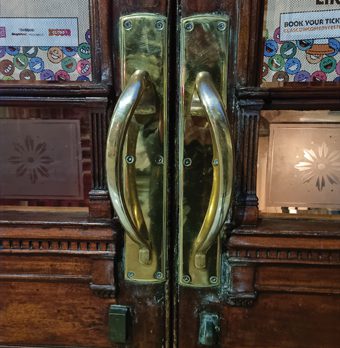Public urination and physical assaults, verbal abuse and intimidation, are among cases of anti-social behaviour by theatre audiences, according to a survey of more than 1,500 people working in theatrical venues across the UK, by the trade union Bectu.
Drink stood out as a key factor, with 90 per cent of respondents agreeing that people arriving at venues under the influence of alcohol or other substances contributes to poor behaviour. A majority in the survey believed that their employers needed to rethink their approach to alcohol sales. Many of those responding agreed that the bad behaviour has become more common, and more extreme, after the covid pandemic. The responses came from those mainly ‘customer facing’, working in front of house, hospitality, box office, and stage door roles, as well as technical roles like sound and lighting; working in and for a variety of venues and shows, including jukebox musicals, comedy shows, plays, pantomime, opera and ballet.
Most, 90 per cent of respondents (Bectu members and non-members) reported having directly experienced or witnessed poor audience behaviour, and more than 70 per cent felt that the issue is worse post-pandemic. Nearly half of respondents said they had thought about leaving the industry as a result. Those responding agreed strongly with the need for more staffing, more training and support, and use of hired security staff.
On alcohol, the survey found that it wasn’t a simple problem that could be solved by a broad clamp-down on sales, and ‘poorly-designed policies or high pricing’ would only encourage people to try to bring cheap booze in with them, or to ‘pre-load’ by drinking beforehand. However, some reported that alcohol was being marketed and sold in some venues much more aggressively.
Incidents reported include physical aggression; threats of violence; sexual harassment or assault; mass brawls; assaults on staff or other members of the audience; defacing or damaging venues; and racial slurs. Bullying, violence, intimidation, harassment or abuse of staff is the most common form of poor audience behaviour – over 90 per cent reported personal experience of this type of behaviour. Next most common were violence, abuse, discrimination, intimidation or harassment of staff or audience members based on race, gender, sexual orientation, disability or another characteristic. Also commonly reported were general disorderly, unsafe, intoxicated or lewd behaviour; inappropriate use of mobile phones; and vandalism to a venue.
While reported incidents against staff were found to be most common and frequent, the survey suggests that violent and anti-social behaviour by audience members towards others in the audience is also common. While many respondents pointed to changes in behaviours post-pandemic, a sense of audience entitlement and a marked lack of concern for others’ ability to enjoy their experience, many also felt that venue management had insufficient will, policies or resources to adequately deal with the issue. Hence Bectu has formed a ‘safer theatres charter’, which calls on venue management to take a more thorough and zero-tolerance approach to anti-social audience behaviour. One responding to the survey complained that ticket-holders were ‘visibly intoxicated when they walk through the door but management refuse to turn them away’, to avoid conflict …. until there’s a disturbance.
Head of Bectu Philippa Childs said: “Our findings are a resounding call for the industry to do better by its workers, and for audiences to consider and amend their behaviour. The scale and nature of many of the instances reported is deeply disturbing and we will be working with the industry to do all we can to drive urgent and tangible change.
“What is clear from these responses is that these instances are neither rare nor isolated, nor are they relegated to a certain type of performance or geographical location. Across the country people are facing regular aggression and abuse simply for carrying out their jobs. This is wholly unacceptable and we urge venues and industry bodies to commit to working with us to tackle this endemic issue.
“What we’ve uncovered is that anti-social behaviour extends far beyond relatively minor issues of someone talking during a performance or playing on their mobile phone. People are coming to work fearing for their safety and dealing with behaviour no one should have to put up with.
“Everyone has the right to a safe and respectful workplace and with the sector facing a chronic skills shortage, the fact that nearly half of respondents have considered leaving the industry because of anti-social behaviour should sound alarm bells. Many of these workers are already battling long hours and low pay and urgent action is needed to avoid a worsening talent drain.”
For the survey in full visit the Bectu website.
Background
Violence and ASB in the night-time economy is a more general issue; hence the Mayor of London’s Women’s Night Safety Charter, launched in 2018. ExCeL London in Docklands was recently the venue for a Women’s Night Safety Charter Summit. A report published in spring 2022 pointed also to night-time workers’ fears travelling to and from work.
Photo by Mark Rowe, theatre doors.









